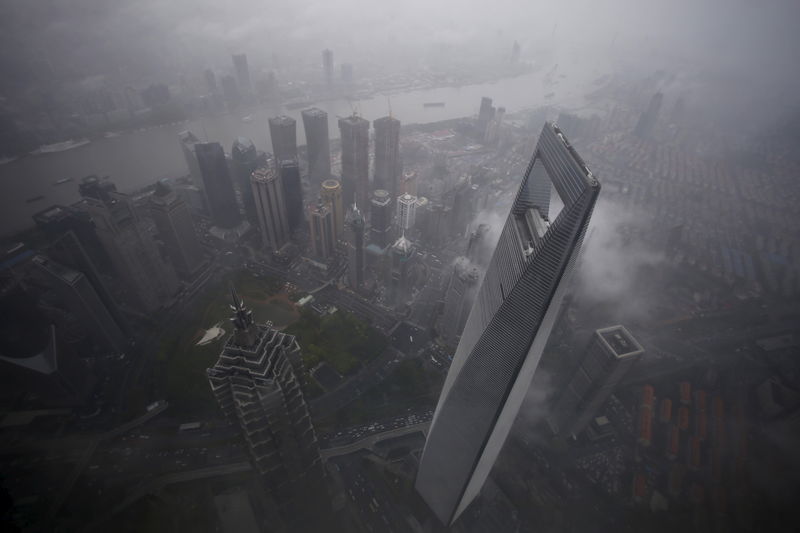By Umesh Desai and Michelle Price
HONG KONG (Reuters) - As China's economy slows and Beijing becomes more relaxed about letting its companies fail, a rising number of foreign bondholders risk being caught up in the country's unpredictable court system.
Last month, solar producer Baoding Tianwei Baobian Electric (SS:600550) became China's first ever state-owned company to default on a bond coupon payment, showing Beijing's increasing willingness to let companies go bust in a bid to reform its corporate market.
Also in April, Kaisa Group became the first Chinese property developer to fail to pay a coupon on its U.S. dollar bonds and Internet company Cloud Live Tech Group (SZ:002306) failed to repay nearly $40 million to bondholders.
Although onshore and offshore bondholders have equal standing in China's bankruptcy law, lawyers and investors who have experienced corporate failures in China, say bankruptcy proceedings are subject to interference from local government officials who rarely prioritize offshore bondholders.
"The courts can and do exercise wide discretion, and it's not always clear how that discretion is applied," said Mark Hyde, global head of the insolvency and restructuring practice at law firm Clifford Chance in Hong Kong, who advised creditors in the 2014 bankruptcy of solar producer Chaori, China's first domestic bond default.
"This is in contrast to other jurisdictions like the U.S., where the key question is whether the legal issues have been satisfied."
Courts also have wide discretion on whether to accept bankruptcy filings and must work closely with local government officials, who are generally more concerned about jobs, local tax revenues and social stability than creditors.
Foreign investors who experienced the bankruptcies of Chaori and Suntech, another early Chinese corporate failure, felt they were treated like a nuisance.
"In the case of Suntech there was radio silence from the company for four months and only when we applied sufficient pressure did they start to come up with a solution. Creditors are seen as a nuisance," said an investor who owned bonds in Suntech but declined to be named due to the sensitivity of the issue.
INCONSISTENCIES
Even though overseas investors represent a tiny fraction of China domestic bond ownership, their number is expected to increase as China moves to open up its corporate bond market, which is the largest in the world.
Foreign ownership in China's onshore bond market is expected to rise to 3-4 percent by the end of 2015, from 2.6 percent, according to Standard Chartered (LONDON:STAN) Bank, but the numbers could grow exponentially once China lifts current investment quotas.
China's Enterprise Bankruptcy Law, which came into effect only in 2007, incorporates elements of both the U.S. and UK insolvency regimes, allowing defaulting companies, or their creditors, to file for bankruptcy in order to restructure the corporate debt or force the company into liquidation.
But the law is still evolving, giving rise to inconsistencies in its application, said Daniel Anderson, a partner at law firm Ropes & Gray, who was involved in the onshore and offshore insolvency proceedings of Chinese steelmaker FerroChina, which defaulted on its debt in 2008.
The case of FerroChina, the first high-profile insolvency case involving a Chinese company, left offshore creditors divided as some recouped as much as 60 cents to the dollar and others nothing.
As China's slowdown continues, lawyers expect to see an uptick in bankruptcy filings, but warned that the outcome of these proceedings would continue to be distorted by political factors.
"We expect to see an increase in defaults and selective corporate failures," said Jonathan Leitch, a restructuring lawyer at DLA Piper in Hong Kong.

"Where purely domestic bankruptcies are concerned, the outcome will continue to be largely pre-arranged at the outset of a bankruptcy filing."